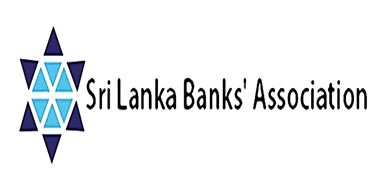
The unilateral decision by the government to suspend debt recovery via parate laws is a knee-jerk response to intense lobbying by a few individual defaulters that do not represent the wider business community, and will have a far-reaching negative impact on the banking sector, which functions as the heart and lifeblood of the economy, the Sri Lanka Banks Association (SLBA) said today.
The Association, which represents all banks licensed by the Central Bank of Sri Lanka (CBSL) including state banks, public listed companies and branch offices of international banks, said it is alarmed over state intervention to curb debt recovery laws, pointing out that there had been no consultation with the banks, and cautioning that the cost of borrowing will increase for all borrowers as a result of the government decision.
It also emphasized that the suspension of parate execution would not will not preserve a mortgaged asset of a defaulter, as banks will continue to exercise mortgage action through the courts of law. “The ‘parate’ execution provision is only one option available to banks in the debt recovery process, that mitigates the impact of the delays in the process,” the SLBA pointed out.
Until existing laws are amended by Parliament, banks will, where appropriate, use the parate remedy as a last resort, prior to going to court. The process requires each individual case to be put to the banks’ boards of directors and the publication of notices in the media. It is not a process that can be implemented at the whim of any bank officer.
Some of the key points made by the SLBA in its statement are:
The SLBA said its members have observed with alarm, the statements attributed to a decision made by the Cabinet of Ministers, that the debt recovery remedies available to banks, under the current laws may be amended.
“This decision and the wide publicity appear to be in response to strong lobbying by a small group of individuals who have defaulted on their debt obligations for a prolonged period. It is the view of the SLBA that this lobby group does not in anyway, represent the wider business community of Sri Lanka,” the statement said.
“Banks use the ‘parate’ laws as an option of last resort in order to expedite debt recovery from loan defaulters with a view to protecting the interests of the banking system and the depositors who provide funds for such loans.”
“The banks believe that the reported unilateral intervention by the Cabinet of Ministers is unnecessary and will weaken the strength of banks in performing their role in supporting economic revival of the country.”
“The SLBA member banks aim is to assist is maintaining stability of the banking system within the regulatory policy framework that supports national economy and protects public depositors. In this context the member banks object in the strongest terms, to the reported interference to amend the existing laws relating to debt recovery and urge policymakers to make decisions based on data and the national economic interest of the entire country, instead of being swayed by the lobbying of a small group of loan defaulters.”
“Public deposits continue to be the main source of funding of banks for lending and granting of credit. These loans include the loan amounts in the names of non-paying borrowers. When the ‘parate’ remedy and/or courts procedures are resorted to by the banks, these borrowers strenuously obstruct and delay resolution. This is detrimental to the legitimate users of the banking system.”
“Depositors must not be made to feel that their deposits are unsafe in banks. The rising proportion of non-performing loans is a warning that non-paying borrowing businesses must be expeditiously revived if they are commercially viable. If they are not viable, they must be expeditiously liquidated in an orderly manner with no continuing diminution of asset values.”
“The existing Parate laws provide a structured and legal means for banks to recover long outstanding debts of borrowers. Banks proceed with Parate Action as a last resort. This is when they have been unable to persuade borrowers to cooperate in reaching workable debt repayment rationalization plans (such plans sometimes necessitate stronger expense discipline and disposal of non-core, non-income producing assets). Continuation of an irretrievable business is not a good policy in the national interest and most importantly cannot be funded long-term by the bank depositors.”
“The public trust reposed in the banking system depends on the banks being able to continue meeting their obligations to depositors to repay as agreed, the interest earned on the deposits and also to repay the principal deposit on maturity.”
Subscribe to our newsletter to get notification about new updates, information, etc..